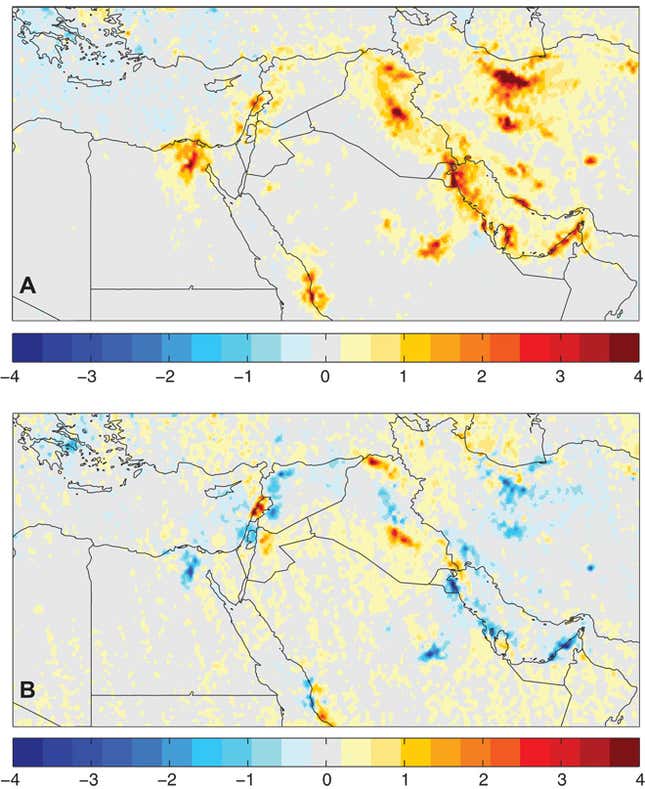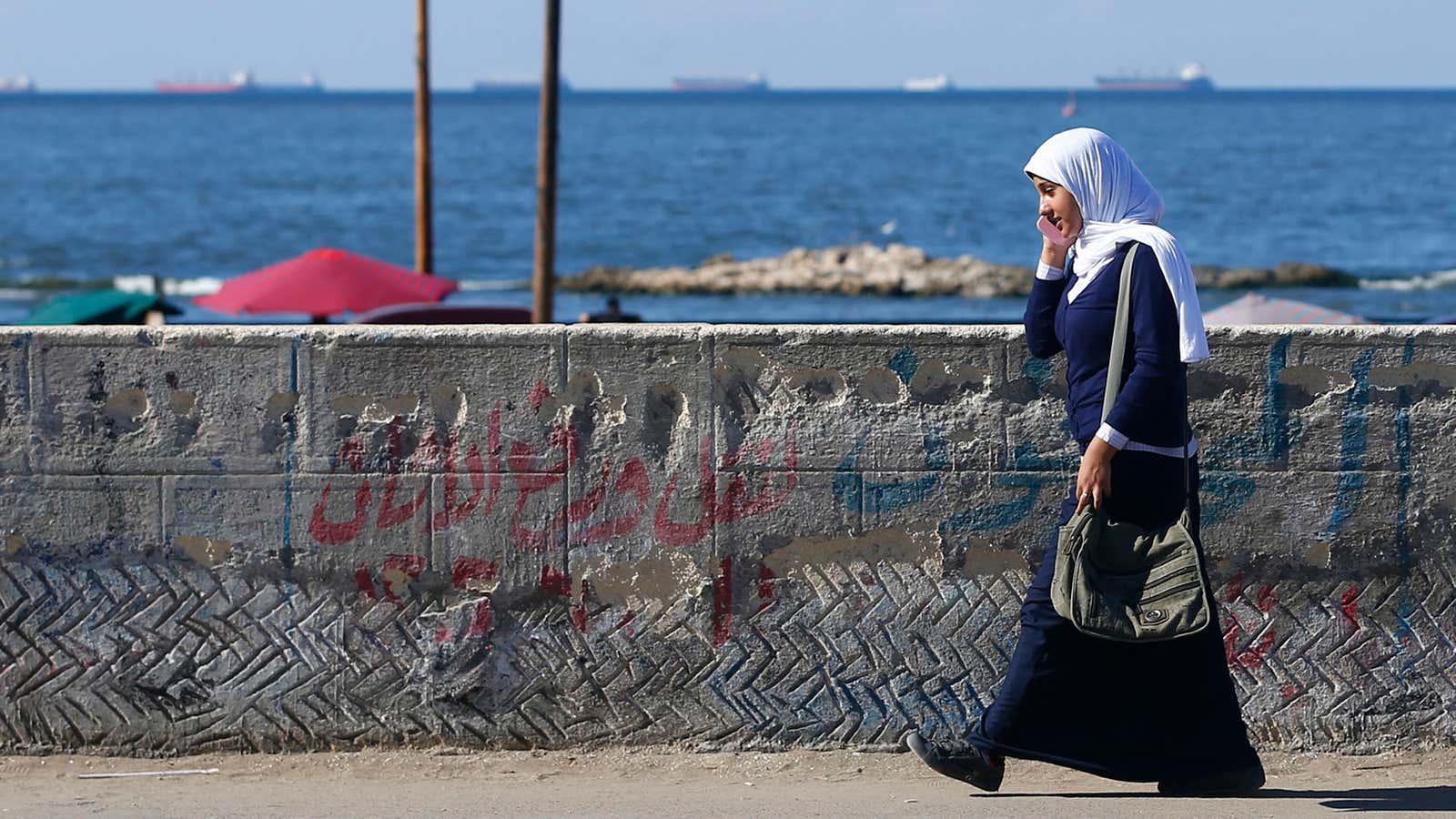Air pollution levels have been soaring in Asia, as countries like China and India have grown so fast that they’ve sprung massive cities almost overnight.
From 2005 to 2014��across most of Asia, rapid growth of cities led to an increase in air pollution, especially nitrogen dioxide. But, from 2010 to 2014, while the rest of Asia saw more pollution, it actually fell in the Middle East. The amount of nitrogen dioxide fell by as much as 50% in many areas.

What could have caused it? Usually, environmental policies–but none were implemented in the Middle East. This puts the plummeting levels of nitrogen dioxide at odds with scientific projections for air pollution and climate change in the region. So what happened? War.
According to researchers of a new study, published in Science Advances, the reason is the decline in industrial activity because of political upheavals and armed conflict. ”In Syria and Egypt, armed uprisings and political crises have led to economic and social pressures,” says lead researcher Jos Lelieveld of the Max Planck Institute for Chemistry. “In Syria and Iraq, the [outpouring] of refugees has reduced pollution.”
Wars rarely ever bring good news. When they do, however, we must capitalize on them. Despite a fall in air pollution, the Middle East would be better off if it started implementing environmental policies now. That would keep pollution in check when peace and prosperity returns. And these steps are necessary because one country’s air pollution can easily become a problem for another country.
Just take this case of how China’s pollution offset the reductions in air pollution achieved by the US through strict environmental policies.
